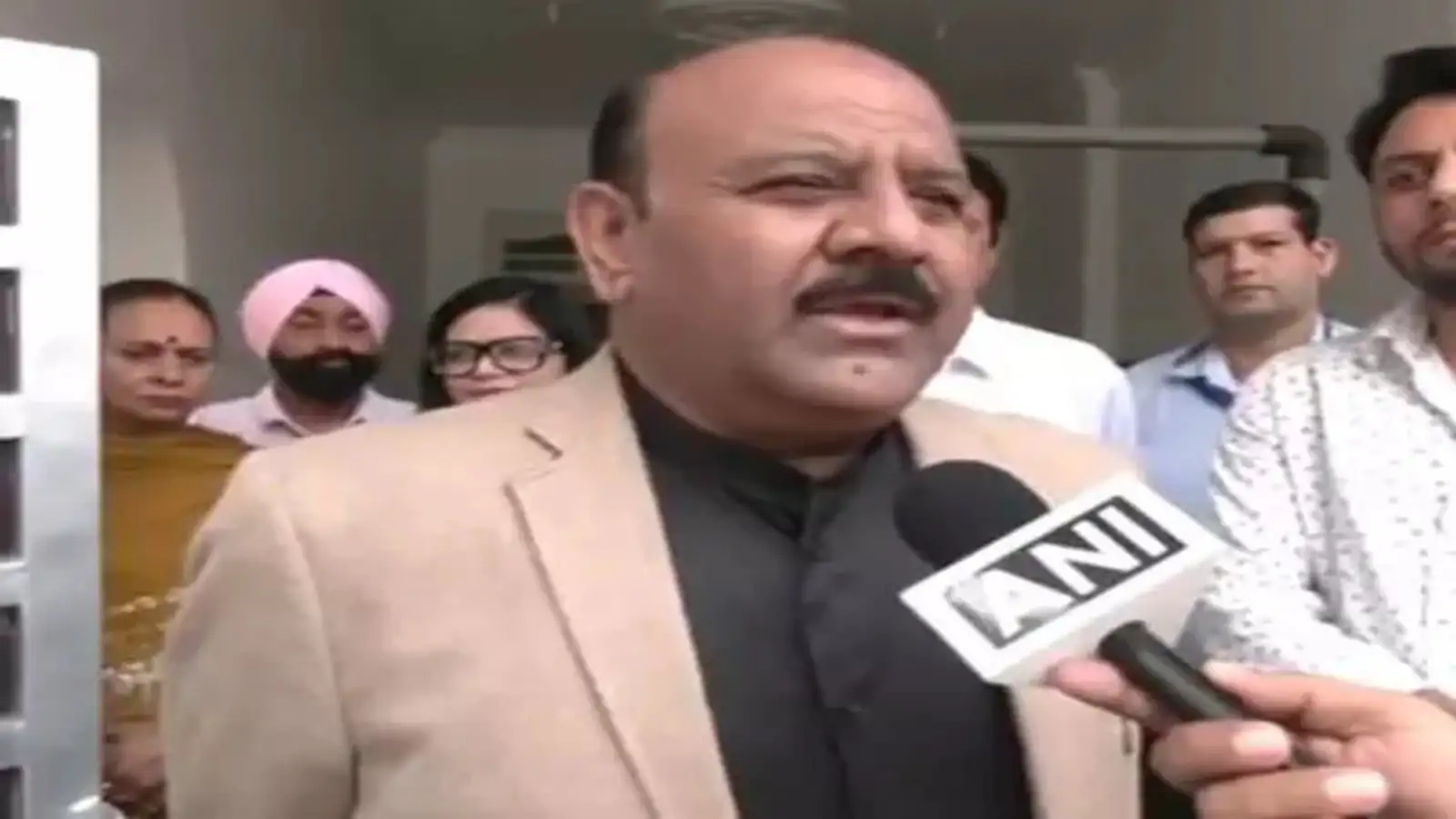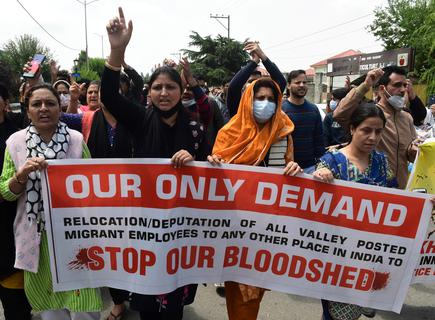A Deputy CM Speaks Out
By: Javid Amin | 07 October 2025
When Surinder Kumar Choudhary — the Deputy Chief Minister of Jammu & Kashmir — publicly declared that the **Lieutenant Governor’s (LG’s) administration withdrew his security vehicles after he “spoke the truth,” it sent ripples through the region’s political establishment. The allegation is dramatic, personal — and indicative of deeper tensions between the elected government (National Conference-led coalition) and the centrally-appointed LG regime.
Choudhary’s statement came in the context of a broader appeal to the Supreme Court of India, urging it to consider the sentiments and unique status of J&K and Ladakh when ruling on disputes, especially concerning 2019 constitutional changes. He also called for restoration of statehood, criticized bureaucratic delays, and flagged irregularities in administrative functioning.
This article unpacks his remarks, places them in the ground realities of J&K’s evolving political structure, verifies key facts, and analyzes the implications.
Who Is Surinder Choudhary? Political Profile
To understand the impact of his claims, we must first know who Surinder Choudhary is, his political trajectory, and his role in J&K’s governance.
-
Surinder Kumar Choudhary (born 1968) is the 9th Deputy Chief Minister of Jammu & Kashmir, sworn in on 16 October 2024 under the Omar Abdullah government.
-
He represents the Nowshera Assembly constituency, having won the seat in the 2024 J&K Assembly elections.
-
Before joining the National Conference (NC), Choudhary was earlier with the People’s Democratic Party (PDP) and had also briefly aligned with BJP, before returning to NC in 2023.
-
His ministerial portfolio includes Public Works (R&B), Industries & Commerce, Mining, Labour & Employment, and Skill Development among others.
Thus, Choudhary holds significant responsibilities in governance and development. His dramatic allegation against the LG is not mere posturing but a statement from someone inside the administration with skin in the game.
The Allegation: “LG Withdrew My Security Vehicles”
The Claim and Its Timing
In mid-October 2025, Choudhary publicly stated that after he demanded that the LG regularize certain pending files and address lapses in administration, the LG’s office responded by removing his security vehicles. He framed it as retaliation:
“When I asked LG sahib to get the order done, he got angry and removed cars from the motorcade.”
“You gave me protection for 11 years… and now you suddenly remove them.”
This is not merely about security protocol; for a senior executive in a high-tension region, security vehicles are part of daily function, movement, and access. To remove them is to handicap him practically and symbolically.
Cross-verification & Media Reports
Multiple news outlets carried the allegation:
-
Greater Kashmir reported the statement under the same headline, “LG withdrew my security vehicles after I spoke truth.”
-
UNI (United News of India) also covered the claim: “J&K Deputy CM accuses LG of removing cars from his cavalcade.”
-
KNS Kashmir carried a story headlined similarly, adding that the Deputy CM said it was over “truthful remarks.”
No counter-statement from the LG’s office was prominently reported at the time of writing, though official silence or delay is characteristic in J&K’s power dynamics.
The consistency across independent regional media gives credibility to the basic fact: that Choudhary made the claim and it is being reported widely.
The Core Arguments: Appeals and Criticisms
Choudhary’s remarks were not limited to the security issue. They encompassed larger themes:
1. Faith in the Supreme Court as a National Institution
He asserted:
“We place our faith in the law of India and in the highest court of the land, the Supreme Court, because it is the one institution that the entire country trusts, beyond religion and community.”
This is a strategic move. In a region often accused of legal exceptions and special handling, invoking the Supreme Court as a fair arbiter underscores his attempt to align with national legal frameworks rather than regional separatist rhetoric.
2. Addressing the 2019 Changes and Ladakh
Choudhary urged that the Supreme Court should consider the sentiments of J&K especially regarding the 2019 bifurcation (creation of Ladakh) and revocation of Article 370/35A. He criticized:
-
The lack of dialogue when decisions affecting identities were taken unilaterally.
-
The absence of consultation with the heirs of Maharaja Hari Singh before altering the state’s constitutional status.
-
The failure to properly factor in Jammu & Kashmir’s sensitivities when altering boundaries, powers, and identities.
3. Restoration of Statehood & Employment
He emphasized that without statehood, many governance powers rest with the LG and the central administration, hurting accountability:
-
Restoration of statehood is necessary to give power back to elected representatives.
-
It is also essential to address unemployment, as administrative bottlenecks, central control, and lack of local economic levers hamper job creation.
-
A fully empowered state government could better deliver welfare, infrastructure, and resource control.
4. Bureaucratic Delays, Irregularities & Administrative Control
Choudhary publicly urged the LG to:
-
Release pending files held in bureaucratic limbo.
-
Implement business rules consistently so that government departments function.
-
Address allegations of wrongdoing without selectively targeting political opponents.
His point: the structure is hollow if administrative machinery remains paralyzed or manipulated.
Ground Realities & Political Context
To see whether Choudhary’s statements reflect only personal grievance or a deeper systemic conflict, we examine the broader political and administrative backdrop in J&K.
The Power Struggle: Elected Government vs LG Regime
Since the reorganization of J&K in 2019, and even more after the 2024 J&K Assembly elections, there has been an ongoing tussle between:
-
Elected governance (Chief Minister + Council of Ministers), which seeks control over policy, execution, and development priorities.
-
The Lieutenant Governor’s office, which holds residual powers, oversight, and often intervenes in areas like land, policing, security, civil services, and appointments.
In practice, friction is expected: where the LG sees central interests or security concerns, the elected government sees encroachment. Choudhary’s claim of withdrawal of his security vehicles is a dramatic symptom of that friction.
Administrative Backlogs & Status of Files
Multiple reports from local media and civil society have pointed to:
-
Long delays in sanctioning projects, approvals, or budget releases in departments such as PWD, industry, mining, etc.
-
Departments working with insufficient staffing or constraints due to central oversight.
-
Occasional reports of selective transparency, where politically aligned demand files are pushed through while others languish.
While specific verification of Choudhary’s pending files is internal to the government, such delays are part of everyday governance complaints in J&K.
The Security Dimension
J&K has a pervasive security environment. For senior officials and ministers:
-
Security vehicles, protection, convoy logistics are standard arrangements. Removal of such vehicles is not a trivial matter.
-
Transiting across the region, ministers require coordination with security agencies. A disruption in security conveyance burdens administrative mobility.
-
In such a context, the withdrawal becomes not just symbolic intimidation but practical hindrance.
Choudhary’s Political Strategy: Why He Speaks Out
Choudhary’s public airing of grievances was not accidental; it served multiple political goals:
-
Projecting Strength to His Base
As Deputy CM, particularly representing Jammu, he must show he is willing to push back against central dominance, thus retaining credibility. -
Forcing Public Visibility
Such allegations attract media attention and dissent within bureaucratic corridors, compelling responses or at least public awareness. -
Positioning Ahead of Legal Battles
By invoking the Supreme Court and calling for judicial consideration, he is proactively placing his arguments in future legal challenges involving J&K’s constitutional status. -
Pressuring the LG
Public pressure may force the LG’s office to clarify, rescind, or moderate its position — especially in politically sensitive times.
Implications & Risks
Choudhary’s bold claims carry both potential gains and major risks.
Potential Gains
-
Narrative Control: He shifts the discourse from internal coalition dynamics to a broader fight between local democracy and central overreach.
-
Public Sympathy: Many in J&K view the LG regime as overbearing; claims of him being targeted may garner popular support.
-
Judicial Leverage: The Supreme Court may later consider this incident when adjudicating statehood or governance disputes.
-
Stronger Positioning: Within his party and coalition, he signals he will not be a silent minister — demanding clout, not tokenism.
Risks & Backlash
-
Institutional Retaliation: The LG or central agencies may respond with administrative actions against him, his department, or party colleagues.
-
Political Isolation: If coalition partners or bureaucrats distance themselves, he may be painted as disruptive.
-
Credibility Loss: If evidence does not support his claims, critics will label it a stunt.
-
Fueling Polarization: In J&K’s delicate environment, such confrontational politics can exacerbate tensions between Jammu and Kashmir regions, or between bureaucrats and elected officials.
Fact-Check and Caveats
-
No official confirmation from the LG’s office or central government was found at the time of writing to refute or verify the withdrawal of vehicles.
-
Media reports consistently reproduce Choudhary’s version, but none (so far) present documents or independent verification such as official memos, orders, or security logs.
-
His appeal to the Supreme Court and mentions of historical consultation (e.g. Maharaja Hari Singh’s heirs) are constitutional-legal strategies; whether they hold in Court remains for legal validation.
-
Administrative backlog and delays are widely reported flaws in J&K’s governance ecosystem — but attributing them to willful sabotage vs systemic incapacity is always contested.
Broader Context: J&K’s Governance Dilemma
The Status Question: Statehood, Union Territory, and Power Balance
Ever since the revocation of Article 370 in August 2019, J&K’s governance structure fundamentally changed:
-
The state was bifurcated into Jammu & Kashmir and Ladakh, both now union territories (J&K with a legislature, Ladakh without).
-
The Lieutenant Governor’s powers were expanded.
-
Local demands have grown for the restoration of full statehood, reversing devolution of power to locally elected bodies.
Choudhary’s push for statehood is aligned with many regional voices who claim that UT status stunts democratic responsiveness and local accountability.
The Role of Judiciary & Legal Suits
Many petitions lie before Indian courts challenging the 2019 changes, use of special laws, and administrative control. Choudhary’s appeal to the Supreme Court signals that the government will also be a party to those legal arguments, emphasizing local sentiment and historical rights.
Governance vs Security Trade-offs
In J&K, security concerns often overrule development agendas. Elected ministries repeatedly complain of being sidelined in “security” and “law & order” issues, leaving them in a constant friction arena with the LG and central security apparatus.
Political Tensions Within the Coalition
The NC-led government and Congress must balance internal dynamics: ministers like Choudhary making bold public claims risk creating backlash or making coalition discipline harder. Yet, such claims also energize public alignments around notions of dignity, identity, and regional control.
What to Watch Next
-
LG’s Response or Denial
Will the LG office issue a formal statement, justify the removal, or restore security vehicles? -
Official Orders or Memos
If Choudhary’s team publishes memos, logs, or directives showing removal orders, credibility will soar. -
Supreme Court Suits
Do these public appeals translate into legal petitions referencing this incident? -
Impact in Jammu & Kashmir Politics
How do party colleagues, opposition parties, civil society groups, and media respond? -
Administrative Action
Will Choudhary face demotion, reassignment, or disciplinary measures? -
Public Sentiment
Does this strike a chord with common people who feel similarly powerless under bureaucratic centralization?
Bottom-Line: A Microcosm of Power & Resistance
Deputy Chief Minister Surinder Choudhary’s charge that his security vehicles were withdrawn for “speaking truth” is more than a personal grievance. It crystallizes the ongoing tension between local elected authority and central administrative machinery in Jammu & Kashmir. It is a test of legitimacy, institutional balance, and the capacity of regional voices to assert influence.
As J&K continues to navigate its post-2019 political transformation — between demands for statehood, bureaucratic reconfiguration, and judicial battles — incidents like these may become key markers of power, resistance, and sovereignty within India’s constitutional order.



